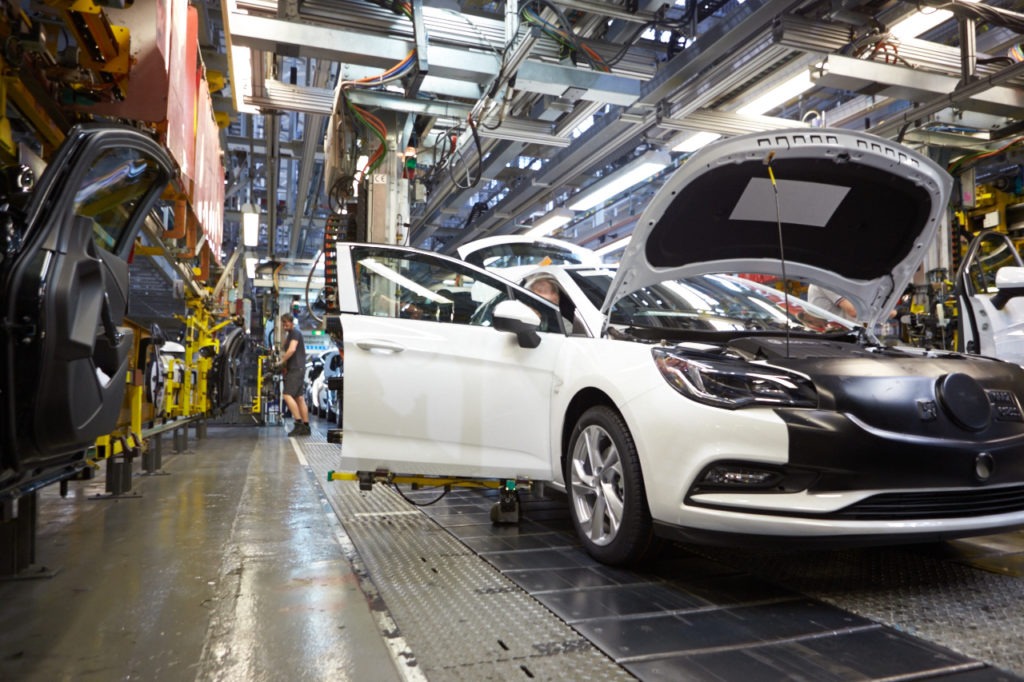PSA could move Opel Astra manufacturing abroad as Brexit concerns highlight cost implications
30 August 2017

As the UK Government continues its discussions with the European Union over the terms of its exit from the EU single market, the automotive industry is one of the key areas which has been seen to be suffering. However, investment in UK plants has been secured, partially thanks to government incentives and manufacturers deciding to utilise facilities for exports to territories other than the European mainland.
However, there are potential issues on the horizon, especially with the Vauxhall brand (Opel in the EU). Following its acquisition by PSA Group, which was completed in August 2017, the company is now looking at ways of stemming huge losses sustained under its ownership by General Motors (GM). While PSA has said there will be no imminent job cuts, a situation is looming that may force their hand.
The current Astra model is produced in the UK, at Ellesmere Port in Cheshire, and has been since 1981. However, in 2021, the new generation Astra is expected to be launched, and it will be at this stage that PSA will want to look at how it can use its facilities to reduce costs. Currently the model is produced both in the UK and Poland; however, with low sales, Ellesmere Port is only running at 63% capacity, far below the 80% threshold needed for it to be profitable. Another problem is that the Opel brand is only sold in the EU, so parts imports, and vehicle exports, will all be subject to tariffs once the UK leaves the market. In total, 80% of vehicles made in the UK by Opel are sent to the mainland, while 75% of parts used come from the continent.
Therefore, financial incentives may not be enough for PSA, which could move production of the new Astra to any of its EU-based plants which produce similar-sized vehicles, such as the Peugeot 308. This would certainly be a cost saving for the company and would help it on the path back to profitability. However it would also mean the potential closure of Ellesmere Port, and the loss of jobs within.
According to the Financial Times, there have been suggestions that Ellesmere Port could remain as a right-hand drive facility, making the Peugeot, Citroën and Vauxhall vehicles for the UK market, and protecting the company from shifts in exchange rate and potential tariffs in the valuable UK domestic market following Brexit. CEO Carlos Tavares has even said that, in the event of a Brexit that leads to tariffs with mainland Europe, it could be a chance to source more components for a UK plant in Britain.
But this would see the site’s output shrink dramatically. Combined sales of the Vauxhall Astra, Peugeot 308 and Citroën C4 Picasso in the UK were just over 93,000 last year. Ellesmere Port produces 120,000 cars a year within its current 63% utilisation capacity, which would mean this dropping further away from optimal.
The UK is aware that Brexit could impact on Ellesmere Port, especially after the PSA takeover. Greg Clark, the UK business secretary, met with directors of PSA in Paris and London during the takeover negotiations, not only to seek assurances over the future of the plant, but to advertise the site as a possible assembly line for the company’s electric cars.
In the UK’s favour, since the Brexit referendum result, two major model decisions have been made, with Nissan confirming it would build two new SUVs at its Sunderland plant, following assurances it would be shielded from any negative impact Brexit may have, while BMW has announced its new Mini electric model will be built in Oxford, following much discussion. Toyota has also announced investment in its UK operations, although no additional models are expected, while Honda will put money into its Swindon facilities, using them to build models for US exports.
It is, however, such negative impact that could sway PSA’s decision. The Society of Motor Manufacturers and Traders (SMMT) has been pushing for an interim deal to prevent export tariffs from harming the industry. Following the announcement of a paper looking into the potential of such a deal with the EU, Mike Hawes, chief executive of the group, commented: ′It is encouraging that government recognises the need for interim arrangements which must be in place until the new relationship with our biggest trading partner is implemented. The automotive industry needs certainty to attract investment and make planning decisions so such a move – if agreed by the EU – would take some time pressure off these difficult negotiations.’
While the new Astra won’t go into production until 2021, negotiations are sure to take place in the coming months in order to safeguard Ellesmere Port’s future. However, many of these discussions will not be completed until the impact of Brexit is known, which will only come in the months after the deal is expected to be completed in 2019.
Photograph courtesy of General Motors